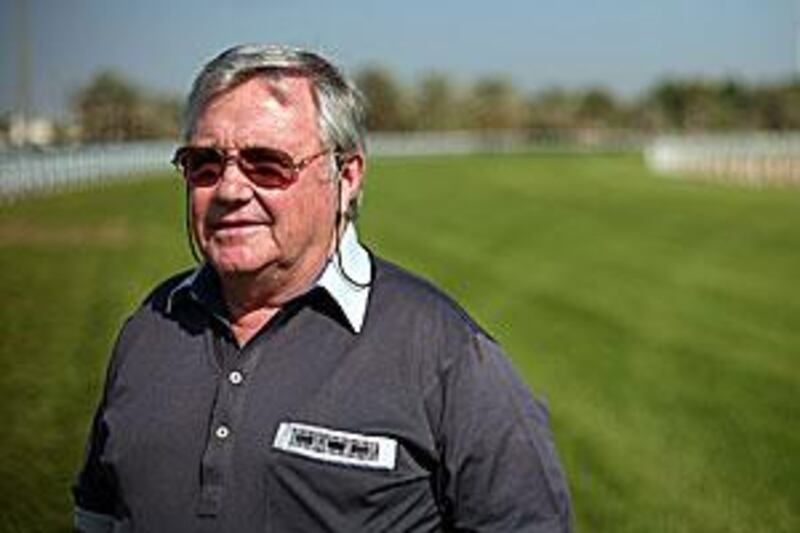Pat Buckley has been under the starter's orders more than anyone in the horse-racing industry in the Emirates. He played a pioneering role in establishing racing in Oman before moving on to his present job as the racing director of the Abu Dhabi Equestrian Club in 1991. When he was 19, Buckley became the second youngest jockey to win the Grand National when he triumphed on Ayala in 1963, and there are only three jockeys still alive - Jimmy Power, Jerry Scott and Michael Scudamore - to have won the United Kingdom's most famous race who are older then him.
At 66, Buckley shows no signs of slowing down in the sport he has lived and loved all his life, first as a jockey and later as an administrator. In Abu Dhabi he goes about his business with the same efficiency and appetite he had in the days when he was riding winners. "Abu Dhabi is deeply rooted to traditions and the Purebred Arabians are part of the culture and heritage, thus the races in Abu Dhabi are predominantly for the Purebreds," he says.
"The late president, Sheikh Zayed, founded the breeding stables with the idea of establishing the finest Purebreds for racing and the tradition continues with the rulers of the country. They have used the best stallions and mares from around the world for the breeding and as a result the quality of the local breeds have improved remarkably." There are several breeding stables established in the Emirates as well as abroad, including facilities in France, of Sheikh Mansour bin Zayed, the chairman of the Emirates Racing Authority, and Sheikh Sultan bin Khalifa, the chairman of the Emirates Racing Federation.
"Abu Dhabi has not moved at the same pace as in the other countries or the other emirates, but they have steadily established the industry, both in terms of the racing and the infrastructure," says Buckley. "This season we have added a race for thoroughbreds in each of the 17 meetings. It certainly provides more variety for the public. This is also to accommodate or provide more races for the thoroughbreds until the track in Meydan is ready."
The Meydan complex, estimated to cost around Dh4.77billion, is scheduled to hold its first meeting on January 28, and will become the new home for the world's richest horse race - the Dubai World Cup - in March. "Abu Dhabi has maintained its contribution to the industry by hosting their regular share of the race meetings. The President's Cup for Purebreds with a purse of Dh1million is the highlight of the capital city's calendar besides the National Day Cup and the Emirates Championship," says Buckley.
"The list has grown over the years with the UAE Arabian Derby, the Triple Crown series, and the Classics for the local bred colts and fillies. These are besides the other prestigious events for both, the Purebreds and the thoroughbreds. There are more races for the local bred today than six or seven years ago. And we accommodate a majority of them in Abu Dhabi. The Abu Dhabi meetings have also attracted some of the finest Purebreds from Qatar, Bahrain and Oman, and we expect them to continue to participate, giving it an international flavour."
Dynamite, trained by Saifaldeen Deeb and ridden by the South African Keegan Latham, created history by becoming the first local bred to win a Group 1 race when he claimed the President's Cup from the triple Kahayla Classic winner Madjani in February 2008. Fryvolous, who won the Arabian showpiece on the Dubai World Cup night last season, was one of the beaten horses on that day. Dynamite, a gelded son of Bibi De Carrere, won eight races from 27 starts and ended his racing career in Qatar after sold by his owner Faisal al Rahmani at the end of the 2008 season. Buckley says more Dynamites are in store. @Email:apassela@thenational.ae






